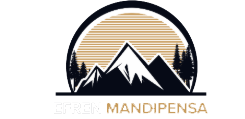For centuries, science has been hailed as the peak of human progress. It has helped us cure diseases, build cities, launch satellites, and connect across continents. But in our rush toward innovation, something sacred has been left behind—the ancient wisdom of the tribes.
What if the knowledge carried by indigenous elders, passed down through songs, stories, and rituals, holds the very answers we now seek? What if the old ways are not primitive, but deeply advanced in a way modern science is only beginning to understand?
Two Worlds, One Search
At first glance, tribal knowledge and modern science seem like opposites. One is rooted in nature, intuition, and lived experience, while the other relies on experimentation, logic, and data. One is spoken beside firelight under the stars, while the other is printed in journals and stored in digital databases.
Yet both are trying to answer the same timeless questions. Who are we? Why are we here? What forces shape our world? Where are we going?
While modern science measures, dissects, and predicts, tribal knowledge listens, observes, and respects the unseen. These are two very different approaches, but they may not be as separate as they seem. They may need each other now more than ever.
The Wisdom We Overlooked
Many tribal traditions hold an understanding of time, nature, and the cosmos that stretches far beyond what textbooks can explain. Ancient people mapped the stars without telescopes. They tracked seasons and weather through plants and animal behavior. They understood healing in ways that still baffle modern researchers.
This wisdom was not written down. It was lived. It was tested by survival, shaped by hardship, and guided by a deep spiritual connection. Yet over time, much of it was dismissed, suppressed, or forgotten—viewed as myth instead of truth.
But in recent years, something has changed. Scientists are returning to study tribal systems of medicine, agriculture, and cosmology with new eyes. And many are finding that the “old ways” are not only valid but essential.
Science Is Not the Enemy
This is not an argument against science. Science is powerful. It helps us explore the universe and improve our lives. But it also has limitations. It struggles to explain consciousness, intuition, or the connection between mind and matter. It often separates facts from meaning, while tribal knowledge sees them as one.
The real issue is not science itself but the idea that science is the only way to know something. This mindset cuts us off from other ways of understanding, especially those that don’t neatly fit into formulas or theories.
A Future Rooted in the Past
The world is facing crises that science alone cannot solve. Climate change, spiritual disconnection, economic imbalance, and cultural breakdown cannot be fixed with technology alone. They require a shift in how we see the world and our place in it.
This is where tribal knowledge becomes vital. It reminds us of our connection to nature. It teaches respect for all living things. It warns us against greed, imbalance, and forgetting who we are.
In Timelines of Truth: Finding Omniverse, these ideas are not just discussed—they are explored through a broader lens that connects ancient wisdom with the mysteries of time, truth, and human potential. The book invites readers to walk between two worlds and find wisdom in the space where they meet.
Keep the Fire Alive
If you have ever felt that something was missing in modern life, you are not alone. If you have ever looked at the stars and sensed that there is more, you are on the right path. The wisdom of the tribes is not lost. It lives on in memory, in story, and now—in the pages of Timelines of Truth: Finding Omniverse by Datu Efren Hospital Mandipensa.
The question is no longer whether science or tribal knowledge is better. The real question is how they can work together to help us remember, restore, and rise.
Let the journey begin.
